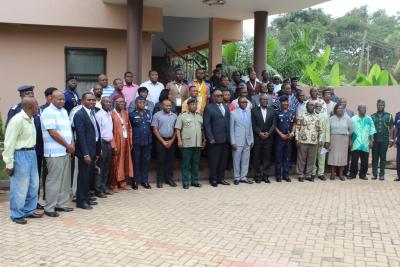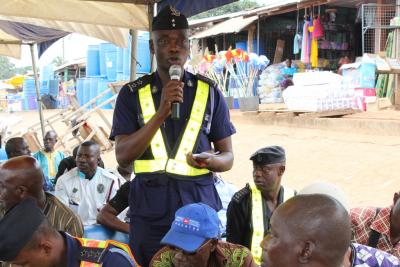ACA Partner Highlight: Borderless Alliance
Borderless Alliance Organizes Road Governance Caravan on Tema-Paga Corridor

From August 2nd—9th, 2015, ACA’s partner organization, Borderless Alliance organized a road governance caravan as part of its efforts to assess the level of competitiveness and performance for the northern section of the Tema-Paga road corridor. The one-week caravan was also meant to assess the level of implementation and compliance of the police administration’s directive prohibiting personnel along all Economic Community of West African States (ECOWAS) transit corridors from stopping and conducting checks on transit trucks.
Complex border procedures have always resulted in a rise in the costs of import, export, and road-based transit trade in West Africa. In recent years, Ghana has pursued aggressive reforms to make its ports and transit corridors more competitive for landlocked trade partners.
Despite these reforms, various data collected along this transit corridor indicate that the costs and delays resulting from various non-tariff barriers, including harassments by police personnel at the various checkpoints, have seen deterioration, rather than improvement. For some time now, various stakeholders have also received complaints from transit operators of landlocked countries and other economic operators about harassment along the Tema-Paga corridor, especially by police officers at the numerous checkpoints that have been mounted.

The directive by the Police administration followed a series of meetings held between the Ghana Police Service and industry stakeholders –notably the Ghana Ports and Harbours Authority (GPHA), the Ghana Shippers’ Authority (GSA), the Burkina Shippers Council (CBC), USAID/West Africa Trade Hub and Partners Network, the ECOWAS Brown Card Secretariat, the National Road Transport Facilitation Committee (NFC), Borderless Alliance, etc.; to find a lasting solution to the problems of delays and extortions arising from the mounting of these checkpoints.
As an advocacy platform, the caravan also aimed at educating both public and private sector partners and stakeholders and to raise awareness in order to strengthen political will to eliminating the identified inefficiencies, and to fight road harassment, and thereby increase overall transport competitiveness. The main activities organized at the respective stops were workshops and roadshows where various presentations were delivered to economic operators to help address some of the challenges that confront them as they ply the corridor. The event was extremely significant in facilitating more efficient trade for agricultural goods.



